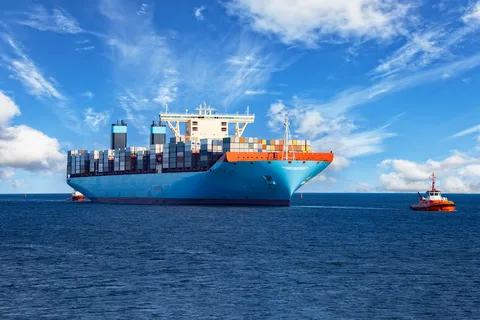In the world of international logistics, sea cargo plays a pivotal role in transporting goods across continents. As the backbone of global trade, shipping by sea offers a cost-effective and efficient solution for moving large quantities of goods. Here’s a concise overview of what sea cargo involves and why it’s essential for global commerce.
Why Choose Sea Cargo?
- Cost-Effectiveness: Sea freight is often the most economical option for transporting large volumes of goods. Compared to air freight, which can be significantly more expensive, sea cargo provides a budget-friendly solution, particularly for non-urgent shipments.
- Capacity and Versatility: Shipping by sea accommodates a vast array of cargo types and sizes. From containers packed with consumer goods to bulk commodities like oil and grain, sea cargo can handle diverse shipping needs with efficiency.
- Global Reach: The extensive network of international shipping routes and ports ensures that sea cargo can reach virtually any destination around the world. This global connectivity makes it a reliable choice for businesses looking to expand their market reach.
- Sustainability: Sea freight is generally more environmentally friendly compared to air transportation. Large cargo ships are designed to carry significant amounts of goods with relatively lower carbon emissions per unit of cargo, contributing to more sustainable shipping practices.
Key Considerations for Sea Cargo
- Types of Containers: Sea cargo typically involves various types of containers, such as standard dry containers, refrigerated containers (reefers), and flat racks. Choosing the right container depends on the nature of the cargo, whether it’s perishable, oversized, or requires special handling.
- Customs and Documentation: Proper documentation is crucial for smooth customs clearance. This includes bills of lading, commercial invoices, and packing lists. Ensuring that all paperwork is accurate and complete helps avoid delays and additional costs.
- Transit Times: Sea cargo generally has longer transit times compared to air freight. It’s essential to plan shipments with this in mind and account for potential delays caused by weather, port congestion, or other factors.
- Insurance: Protect your shipment with adequate insurance coverage. Sea cargo insurance helps safeguard against potential loss or damage during transit, providing peace of mind throughout the shipping process.
- Port Selection: The choice of port can impact your shipping experience. Factors such as port efficiency, customs procedures, and connectivity to inland transportation should be considered to ensure smooth handling of your cargo.
Tips for Efficient Sea Cargo Shipping
- Choose a Reliable Freight Forwarder: Partner with a reputable freight forwarder who has experience in sea cargo logistics. They can help manage the complexities of international shipping, including booking space, handling documentation, and navigating customs.
- Track Your Shipment: Utilize tracking services provided by your shipping company to monitor the progress of your cargo. Real-time tracking helps you stay informed and address any issues promptly.
- Optimize Loading: Efficient loading and packing of containers can reduce shipping costs and minimize the risk of damage. Ensure that cargo is properly secured and that containers are utilized effectively.
- Stay Informed: Keep up-to-date with any changes in shipping regulations, port operations, or global trade conditions that could affect your sea cargo. Staying informed helps you adapt to any challenges and ensures smoother operations.
Final Words
Sea cargo remains a cornerstone of international trade, offering a cost-effective and reliable method for transporting goods across the globe. By understanding the key considerations and partnering with experienced logistics providers, businesses can leverage sea freight to efficiently manage their shipping needs. With its capacity, global reach, and sustainability benefits, sea cargo continues to be an indispensable element of global commerce.
















